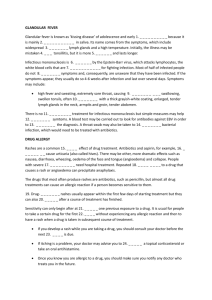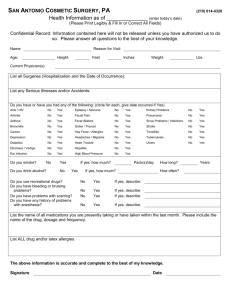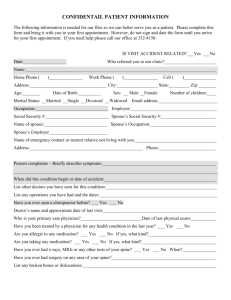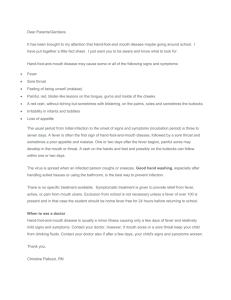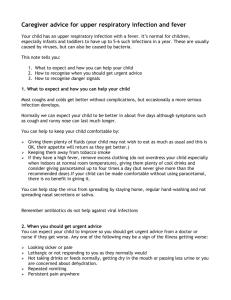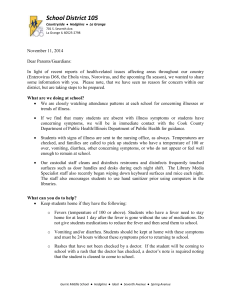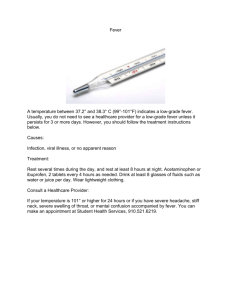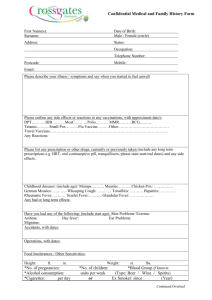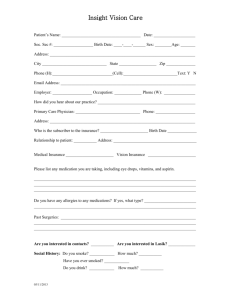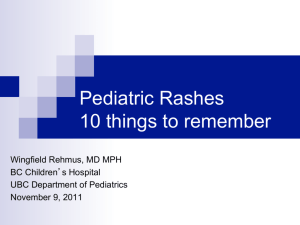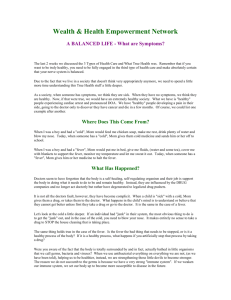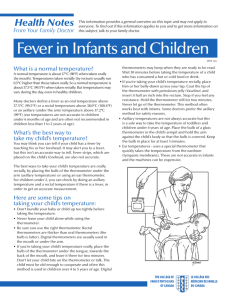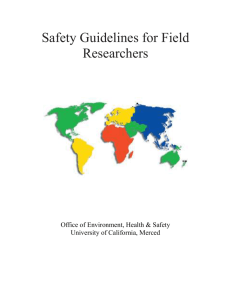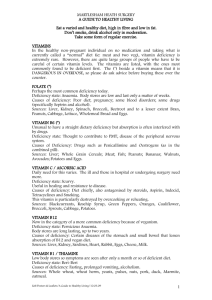Should My Child Go To School Today
advertisement
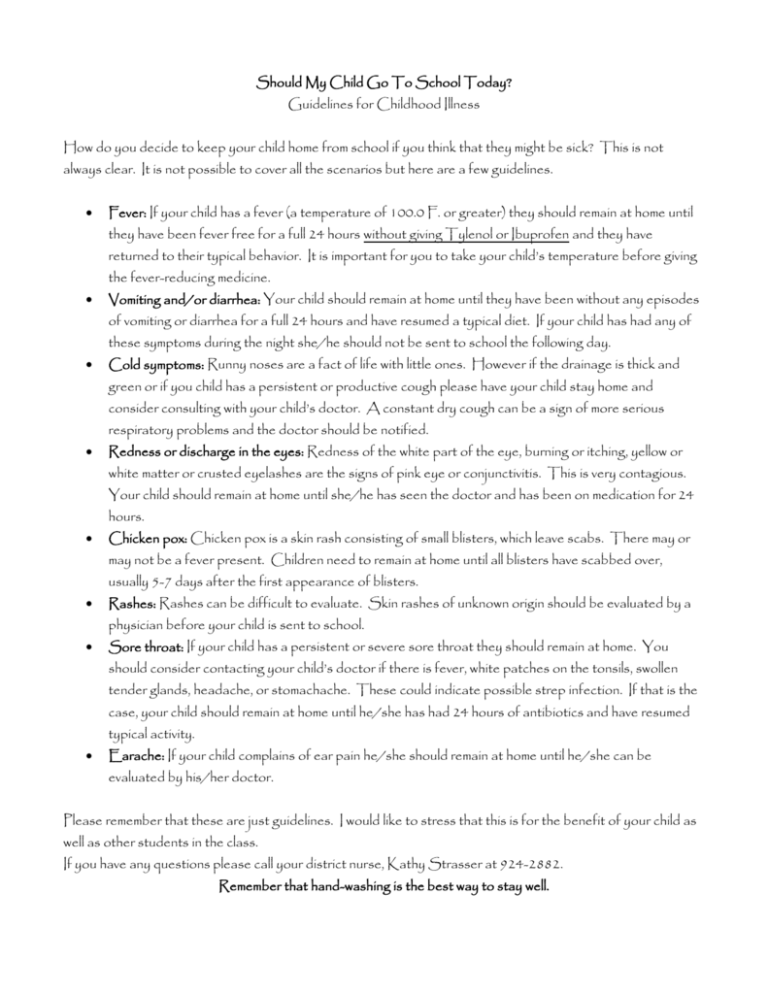
Should My Child Go To School Today? Guidelines for Childhood Illness How do you decide to keep your child home from school if you think that they might be sick? This is not always clear. It is not possible to cover all the scenarios but here are a few guidelines. Fever: If your child has a fever (a temperature of 100.0 F. or greater) they should remain at home until they have been fever free for a full 24 hours without giving Tylenol or Ibuprofen and they have returned to their typical behavior. It is important for you to take your child’s temperature before giving the fever-reducing medicine. Vomiting and/or diarrhea: Your child should remain at home until they have been without any episodes of vomiting or diarrhea for a full 24 hours and have resumed a typical diet. If your child has had any of these symptoms during the night she/he should not be sent to school the following day. Cold symptoms: Runny noses are a fact of life with little ones. However if the drainage is thick and green or if you child has a persistent or productive cough please have your child stay home and consider consulting with your child’s doctor. A constant dry cough can be a sign of more serious respiratory problems and the doctor should be notified. Redness or discharge in the eyes: Redness of the white part of the eye, burning or itching, yellow or white matter or crusted eyelashes are the signs of pink eye or conjunctivitis. This is very contagious. Your child should remain at home until she/he has seen the doctor and has been on medication for 24 hours. Chicken pox: Chicken pox is a skin rash consisting of small blisters, which leave scabs. There may or may not be a fever present. Children need to remain at home until all blisters have scabbed over, usually 5-7 days after the first appearance of blisters. Rashes: Rashes can be difficult to evaluate. Skin rashes of unknown origin should be evaluated by a physician before your child is sent to school. Sore throat: If your child has a persistent or severe sore throat they should remain at home. You should consider contacting your child’s doctor if there is fever, white patches on the tonsils, swollen tender glands, headache, or stomachache. These could indicate possible strep infection. If that is the case, your child should remain at home until he/she has had 24 hours of antibiotics and have resumed typical activity. Earache: If your child complains of ear pain he/she should remain at home until he/she can be evaluated by his/her doctor. Please remember that these are just guidelines. I would like to stress that this is for the benefit of your child as well as other students in the class. If you have any questions please call your district nurse, Kathy Strasser at 924-2882. Remember that hand-washing is the best way to stay well.
